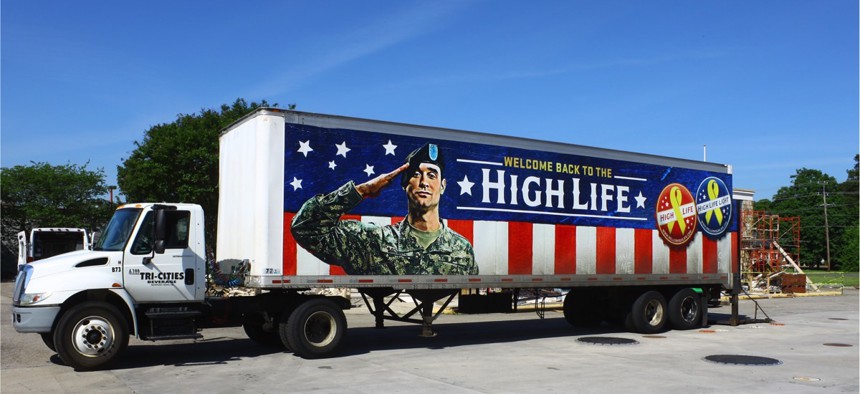Alcohol Distributors Are the Quiet Big Players at Your State Capitol

Barry Blackburn / Shutterstock.com

Connecting state and local government leaders
The Center for Public Integrity details the middlemen spending big bucks and wielding big power to protect turf across the country.
They are middlemen alcohol distributors. They neither brew your beer nor serve it to you. Most Americans don’t know anything about them. But, according to a new report by the Center for Public Integrity, alcohol distributors constitute a mega political interest group, employing armies of lobbyists in state capitols across the country who are fighting the growth of the craft brew and small vineyard industries tooth and nail.
Center for Public Integrity reporter Liz Essley Whyte has compiled a storehouse of stats and interviews in a piece that demonstrates how distributors will determine in large measure the menu of drinks you will set out for friends and family this Labor Day weekend. The piece is a part of a series the Center has titled “Who’s Calling the Shots in State Politics?” It’s a grain-of-sand story that confirms most people’s suspicions about how government and politics work. It details the way booze distributors have consolidated and protected their position over the course of decades.
Distribution is a $135 billion industry, and it knows how to spend its money. As Whyte reports, distributors in 2014 gave roughly $14.6 million to political candidates in every state of the Union except Wyoming. Compare that to the $5.3 million donated by alcohol manufacturers and the $2 million donated by alcohol retailers.
John Conlin, a Colorado beverage-company consultant, told Whyte that that influence is not just about money. It also has to do with votes. He compares distributors to other politically influential special interests like teachers unions. Serving the unions, for example, wins politicians friends in every precinct they represent.
“[T]here are teachers in every congressional district out there,” said Conlin. “Historically that was the same with beer wholesalers.”
Booze distributors grew out of the post-Prohibition era and thrive on laws passed then. As Whyte explains, distributor power keeps growing:
Wineries, breweries and distilleries are generally required by state laws to hire separate distributors to get their drinks to customers, with exceptions that vary by state. States made these rules after Prohibition: some acting to avoid returning to the days of saloons controlled by major alcohol producers that pushed drunkenness; some to decentralize the industry and its political power; and others motivated by former bootleggers with political ties who wanted to stay in business as state-mandated wholesalers.
Today, distributors are in a power position. They can stifle the growth of craft breweries or small wineries by refusing to distribute their products. Or they can foster them by helping them reach customers they couldn’t efficiently reach on their own. Having separate distributors can also push up the price of alcohol.
Whyte’s “Drunk on Power” posted Thursday at the Center for Public Integrity website. Read the whole story there.
(Photo by Barry Blackburn / Shutterstock.com)
John Tomasic is a journalist based in Boulder, Colorado.

NEXT STORY: This City’s Harvard Partnership Helped Eliminate Blight




